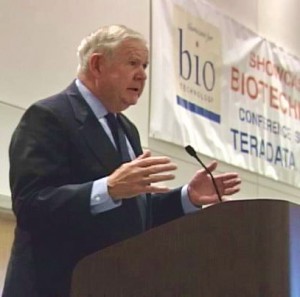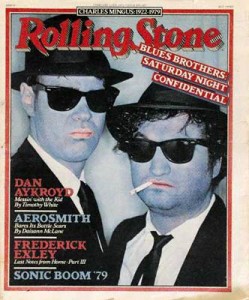Yesterday’s phone call from the Somerset Daily American caught me off guard. “Hi, Nick, have you heard? Congressman Murtha passed away this afternoon. Could you give us a quote?” the reporter said. Truthfully, I was not ready for this call. Having talked to friends who had been with him only a week earlier, everything seemed like it was going to be okay, but obviously, okay was not what it was. He had one of the 500,000 or so laparoscopic cholesystectomies performed each year to remove a gallbladder. This surgery has a .05% complication rate, but the call proved that, regardless of the percentages, there is always risk from human involvement.
 I’ve decided to dedicate this as a very personal look back at my journey with Jack Murtha. Ironically, we had grown up practically as Pennsylvania neighbors in Westmoreland/Fayette Counties. My first real meeting with Mr. Murtha was during the 1977 Johnstown Flood. I was a young teacher and volunteer who was mopping the floors of the relief centers, getting things ready for survivors who had lost their homes when I heard a helicopter come flying in and saw a tall, impressive, 44 year old Congressman deplane. He had only been in Congress for a few years, but had clearly learned enough about the System to keep then-President Carter on his toes and get legislation passed to help his home district.
I’ve decided to dedicate this as a very personal look back at my journey with Jack Murtha. Ironically, we had grown up practically as Pennsylvania neighbors in Westmoreland/Fayette Counties. My first real meeting with Mr. Murtha was during the 1977 Johnstown Flood. I was a young teacher and volunteer who was mopping the floors of the relief centers, getting things ready for survivors who had lost their homes when I heard a helicopter come flying in and saw a tall, impressive, 44 year old Congressman deplane. He had only been in Congress for a few years, but had clearly learned enough about the System to keep then-President Carter on his toes and get legislation passed to help his home district.
My very next encounter with Mr. Murtha wasn’t until about three years later, when his Washington office called me to see if they could help my employer at that time, Laurel Arts of Somerset, with a bill that was going through the House before Ronald Reagan took office. Nothing came out of that call except for the fact that I realized that his employees were parents of former students and people who liked and respected my work from those days.
Then the big encounter hit. Mr. Murtha was looking into bringing the National Park Service into Cambria County to start what became the America’s Industrial Heritage (Tourism Development) Project. He and several other Congressmen came to the University of Pittsburgh in Johnstown to hold a Congressional hearing on the project, and, as the newly-elected President of the Laurel Highlands Convention and Visitors Bureau, I testified against the plan and explained that if they didn’t include Westmoreland, Somerset, and Fayette Counties, we would not display any literature promoting it at all of the tourist sites that we controlled. They agreed, and not many months later, he ended up representing Fayette County as part of his district. It worked out for both of us.
A few years later, I had transitioned into healthcare senior leadership and invited Mr. Murtha to introduce Bob Hope at a fund raising event for the Mercy Hospital of Johnstown. Approximately 6,000 people were in attendance and Mr. Murtha got as much applause as Mr. Hope. The following year he helped us bring in Henry Mancini and his orchestra for a similar event and our respect for each other began to grow.
In 1997, when I became the President of Windber Medical Center, Mr. Murtha and I were seated near each other at a dinner party. It was there that we began to discuss healthcare, and his vision for the future. Anything that would help the soldiers stay well, prevent illness, or stop it before it became an issue was his goal. I heard him speak at the opening of one of his many health center initiatives at Walter Reed Army Medical Center, and he said, “I have 13 honorary degrees, hundreds of awards, and am well known as for my work in defense, but I want my legacy to be healthcare, prevention, and wellness.
His contributions to healthcare, however small they may seem compared to what he has done for the world and for mankind, through his tireless and dedicated work were where his heart was. His strength and vision made him the most impressive human being that I have ever known, and my love and respect for both him and his wife, Joyce, cannot be calculated in mere human measurements. I am proud of him, his work, and his commitment, and I know that the seeds that he has planted in Breast Cancer Research will go on to save thousands of lives someday.
Ironically, it was healthcare that took his life. No one can ever replace Jack Mutha; his knowledge of the system, his guts and determination, his singular efforts to help a district that had been devastated by natural disaster, his kindness and great personality. No one. So, today, I write with great sadness that our great friend is gone, but at the same time, I vow that his name, his contributions to humanity, and his memory will never be gone.
Look at wriwindber.org or windbercare.com, and see what Jack Murtha built. We loved you, Jack.







